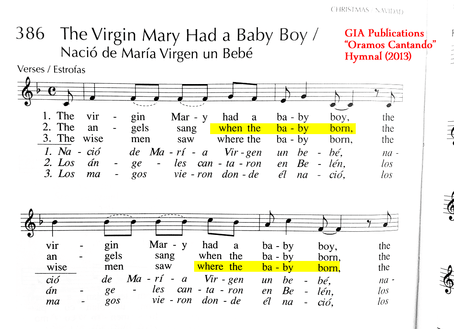 HOSE ATTENDING this year’s Sacred Music Symposium will experience a marvelous surprise, which we today announce. All participants will be given an opportunity to meet composer Kevin Allen! Here’s a snippet from 2011 DVD which features Mr. Allen’s music and conducting:
HOSE ATTENDING this year’s Sacred Music Symposium will experience a marvelous surprise, which we today announce. All participants will be given an opportunity to meet composer Kevin Allen! Here’s a snippet from 2011 DVD which features Mr. Allen’s music and conducting:
Kevin Allen’s compositions are truly inspired, by which I mean they are hauntingly beautiful but utilize a contemporary harmonic language.

 ERIOUS COMPOSERS like Kevin Allen—and many do still exist—remind us that authentic contemporary church music is not dead. The Symposium is proud to be promoting what is positive and wholesome and healthy and holy. For the record, that’s also why I’m thrilled to be part of the Brébeuf Hymnal project, which uses a ton of newly-composed texts and melodies. Mr. Allen will deliver a presentation about living composers who compose serious church music.
ERIOUS COMPOSERS like Kevin Allen—and many do still exist—remind us that authentic contemporary church music is not dead. The Symposium is proud to be promoting what is positive and wholesome and healthy and holy. For the record, that’s also why I’m thrilled to be part of the Brébeuf Hymnal project, which uses a ton of newly-composed texts and melodies. Mr. Allen will deliver a presentation about living composers who compose serious church music.
Examining what’s being published in too many of today’s Catholic hymnals can be quite discouraging. The following comes from a 2013 (!!!) GIA hymnal, and I find its syncopation and grammar inappropriate for the Holy Sacrifice of the Mass:

Is this really sacred (“set apart”) music, building upon the vast treasury of traditional Roman Catholic music? Or is this a goofy attempt to insert 1 into the Catholic liturgy styles which don’t belong? And was the bizarre grammar (“angels sang when baby born”) maintained in the Spanish translation? I’m afraid I don’t know Spanish well enough to know.
By the way, GIA has been pushing similar stuff for decades. Consider the following piece from GIA’s WORSHIP II HYMNAL, with accompaniment by Robert J. Batastini:

What was so unacceptable about the assigned texts, which come directly from sacred scripture? Why was it necessary to abandon them, in favor of stuff like this? And what’s going on here? Is this a story about the Nativity?
No, we haven’t got a manger.
No, we haven’t got a stable.
We are Christian men and women,
Always willing, never able.
But how can that be? How could people be “Christian” at the time of Christ’s birth? And what does this stanza mean?
Jesus Christ has gone to heaven;
One day he’ll be coming back, sir.
In this house he will be welcome,
But we hope he won’t be black, sir.
When I was growing up in the 1990s, we sang songs like this in our Catholic school. Only through secular pursuits—performing works by Chopin, Liszt, Medtner, Glazunov, Brahms, Debussy, Mozart, Bach, Rachmaninov, and others—did I eventually discover the glorious Roman Catholic heritage which had been so carefully hidden from me.
My wife and I have decided never to allow our children to be poisoned by music like what is contained in those “Catholic” GIA hymnals.

NOTES FROM THIS ARTICLE:
1 The other day, we spoke of seminary professor who wants more secular styles at Mass, such as jazz and “commercial pop music.” He seems unaware that people have been struggling mightily to insert secular styles into the Holy Mass for many years.
